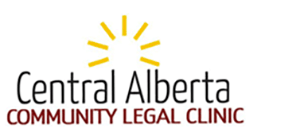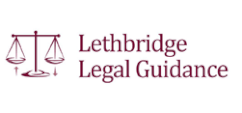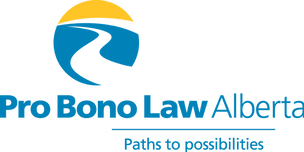|
As we wrap up this week of posts on access to justice in Alberta, we would like to thank you, the readers, for following along, as well as all of the organizations who agreed to be featured:
· Association des juristes d’expression française de l’Alberta · Calgary Legal Guidance · Canadian Research Institute on Law and the Family · Central Alberta Community Legal Clinic · Centre for Public Legal Education Alberta · Edmonton Community Legal Centre · Legal Aid Alberta · Lethbridge Legal Guidance · Pro Bono Law Alberta · University of Alberta, Faculty of Law · University of Calgary, Faculty of Law - ABLAWG Planning is already underway for Alberta’s Access to Justice Week 2019, which will be held from September 29-October 5, 2019. We would love for you to get involved! If you would like to volunteer or have an idea for an event or other initiative, please contact us at: [email protected] Keep an eye on this space for updates about the 2019 iteration of Alberta’s Access to Justice Week. And until then, consider checking out other great justice sector events, such as Access to Justice Weeks in Saskatchewan and Ontario (Oct 22-26), and Alberta Law Day.
0 Comments
Alberta has two law schools, at the University of Calgary and the University of Alberta . Both have undertaken initiatives to promote access to justice.
Please visit the University of Calgary’s blog, ABLAWG, to read about access-to-justice related research published on-line by that law schools Faculty. https://ablawg.ca/category/access-to-justice/ The University of Alberta, Faculty of Law has been training Alberta lawyers since it was established in 1912. The Faculty’s course offerings have evolved over the past century to reflect the changing realities facing its graduates, including the growing concern about access to justice. Two course offerings, spearheaded by Faculty member Catherine Bell, provide students with the opportunity to gain valuable experience working with justice sector organizations and actors, while at the same time developing a critical understanding of the social, economic, and cultural context of the law and promoting better access to justice. LOW INCOME INDIVIDUALS AND THE LAW CLINIC Developed by Professer Bell, Katherine Weaver (then VP Policy, Research & Stakeholder Relations Legal Aid Alberta) and Debbie Klein (Executive Director of the Edmonton Community Legal Centre), this course links the study of law and policy with experiential learning. The goal is not only to give students an opportunity to develop some of the skills necessary in the practice of law, particularly as it applies to low income individuals and other marginalized groups, but also to help them identify other roles lawyers can play – such as working for a non-profit, in policy development or law reform. As part of their training, students work in a variety of clinical settings with Legal Aid Alberta or with the Edmonton Community Legal Centre. In addition they attend a pre-clinical orientation and monthly meetings coordinated by Professor Bell in the fall and a weekly seminar taught by Katherine Weaver in the winter. The combination of an internship and a seminar allows students to connect case work, advocacy, and other forms of experiential learning with substantive and theoretical knowledge of legal issues faced by low income individuals and start to develop a critical understanding of the social, economic, and cultural context of the law. ABORIGINAL JUSTICE EXTERNSHIP AND SEMINAR ON GLADUE SENTENCING PRINCIPLES When Indigenous individuals are being sentenced in the criminal justice system, the judge must think about their experiences as an Indigenous person and consider options other than jail, these are known as the Gladue sentencing principles.[1] To assist judges in applying the Gladue sentencing principles, the accused may have a Gladue Report prepared. A Gladue Report aims to present “a holistic picture of the Aboriginal person by including information about their background and the specific circumstances that brought them before the court.”[2] In 2013 a Gladue Workshop Committee was initiated by members of the Provincial and Queen’s Bench Courts of Alberta in Edmonton in response to concern about the insufficiency of information being provided to the Court to address Gladue factors in sentencing, including consideration of appropriate restorative non-custodial sentencing measures. More recently, the Truth and Reconciliation Commission of Canada noted that overrepresentation of Indigenous peoples in the criminal justice system and litigation involving residential school survivors reveal the need for training lawyers in these and other areas. In response, Professor Bell worked in collaboration with representatives from the Edmonton legal community, including lawyers, judges, students, Indigenous criminal justice workers, Elders, faculty members, sessional instructors and others to create educational initiatives relating to competent legal representation of Indigenous peoples. Offered in partnership with the Government of Alberta (Alberta Justice and Solicitor General) this course was designed by Professor Bell, defence lawyer Nicole Stewart, and Randy Sloan (Manager of Aboriginal and Business Relations, Alberta Justice and the Solicitor General) to provide students with legal, social, historical, and contemporary contexts for understanding Gladue principles in sentencing including the relevance of individual, familial and historic factors; the intergenerational impact of colonization; the recent report of the Truth and Reconciliation Commission of Canada; and the relationship of Gladue to restorative justice and Indigenous legal traditions. Students participate in pre-externship training, attend bi- weekly seminars and complete 20-30 hours assisting Gladue report writers. Support and training for the course is provided by various actors in the judicial system, including Indigenous elders, members of the judiciary, Yellowhead Tribal Community Corrections and Native Counselling Services of Alberta. [1] See Gladue Rights at Bail and Sentencing https://lss.bc.ca/resources/pdfs/pubs/Gladue-Rights-at-Bail-and-Sentencing-eng.pdf [2] See Gladue Report Guide at 15 https://lss.bc.ca/resources/pdfs/pubs/Gladue-Report-Guide-eng.pdf The Central Alberta Community Legal Clinic (CACLC) has been assisting clients in the Red Deer area since 2005. It offers programs such as evening legal advice clinics, additional services through a staff lawyer, a tenant support program, photo ID clinic, and public legal education sessions. Since 2005, CACLC has grown to administer legal clinics and provide services in Medicine Hat, Lloydminster and many other communities around Alberta.
Most recently, in partnership with Pro Bono Law Alberta and YMCA – Northern Alberta, CACLC launched the Community Legal Clinic - Fort McMurray. The project was successfully piloted starting in February 2018, and now runs on the second and fourth Tuesday of each month at the YMCA Wood Buffalo Community Initiatives Centreon Hardin Street in downtown Fort McMurray. So far, the clinic has assisted over 80 clients in the Fort McMurray area. In addition to a dedicated group of local volunteer lawyers, the clinic is also supplemented by remote service delivery by lawyers from outside the community. These volunteers provide legal advice in areas including landlord/tenant law, employment law, criminal law, family law, wills and estates, civil law/debt, traffic/bylaws and immigration. Clients must meet financial eligibility guidelines to qualify to receive service. CACLC is currently recruiting volunteer lawyers to assist with the Fort McMurray clinic. If you practice in one of the above areas of law, and are either located in the Fort McMurray area or are able to provide service via webcast, please contact the Central Alberta Community Legal Clinic at [email protected]. For more information about the services provided by the Central Alberta Community Legal Clinic, visit www.communitylegalclinic.net, call 587-674-2282, or follow them on Facebook at www.facebook.com/centralalbertacommunitylegalclinic. Lethbridge Legal Guidance (LLG) is a non-profit, pro bono legal clinic operating under the vision that all Albertans, regardless of income, have full and equal access to justice. Serving Lethbridge and the surrounding communities, with the assistance of Volunteer Lawyers, LLG provides legal advice clinics, follow up services, public legal education and other community minded programs. In April, in conjunction with Law Day, LLG hosts the yearly Ask-A-Lawyer event. This half day event is open to all residents, regardless of income, and gives them the opportunity for a free in person consultation with a volunteer lawyer. This event assists over 100 clients annually with the generous support of 11 volunteer lawyers.
Pro Bono Law Alberta (PBLA) was launched as a legacy project in recognition of the centenary of the Law Society of Alberta in 2007, and plays an important role in fostering pro bono contributions by the legal community to facilitate access to justice for Albertans. PBLA engages the legal community through programs such as the Civil Claims Duty Counsel and Queen’s Bench Amicus court-based programs in Calgary and Edmonton, which provide assistance for those involved in civil matters. Last year, the court-based programs were supported by more than 1,030 volunteer lawyers, articling students and law students who provided over 4,600 hours of pro bono legal services to more than 5,550 individuals. In addition, PBLA works in the community to broker strategic partnerships between non-profit organizations and law firms to deliver services to vulnerable populations around Alberta, and works across the province to generally promote pro bono service to the legal community.
One of PBLA’s unique program offerings is Volunteer Lawyer Services (VLS), which provides non-profit organizations (and organizations who have not yet received their non-profit registration) with the opportunity to access dedicated assistance from a pro bono lawyer for discrete legal matters. PBLA’s team of volunteer lawyers are available to provide assistance with legal matters that impact non-profits including policy and governance, employment law, contracts, volunteer waivers, charitable registrations, and more. This service allows non-profit organizations to build capacity and focus on carrying out their own mission, all while addressing the legal matters at hand. For VLS volunteers, the program provides an ideal pro bono opportunity as it allows busy practitioners to select the applicants they retain as pro bono clients based on their desired time commitment and to set the scope of the retainer which best fits their schedules. For more information about how your non-profit or potential non-profit can benefit from pro bono service through VLS, or to register to volunteer, please contact us at 403-541-4803, or [email protected]. |






